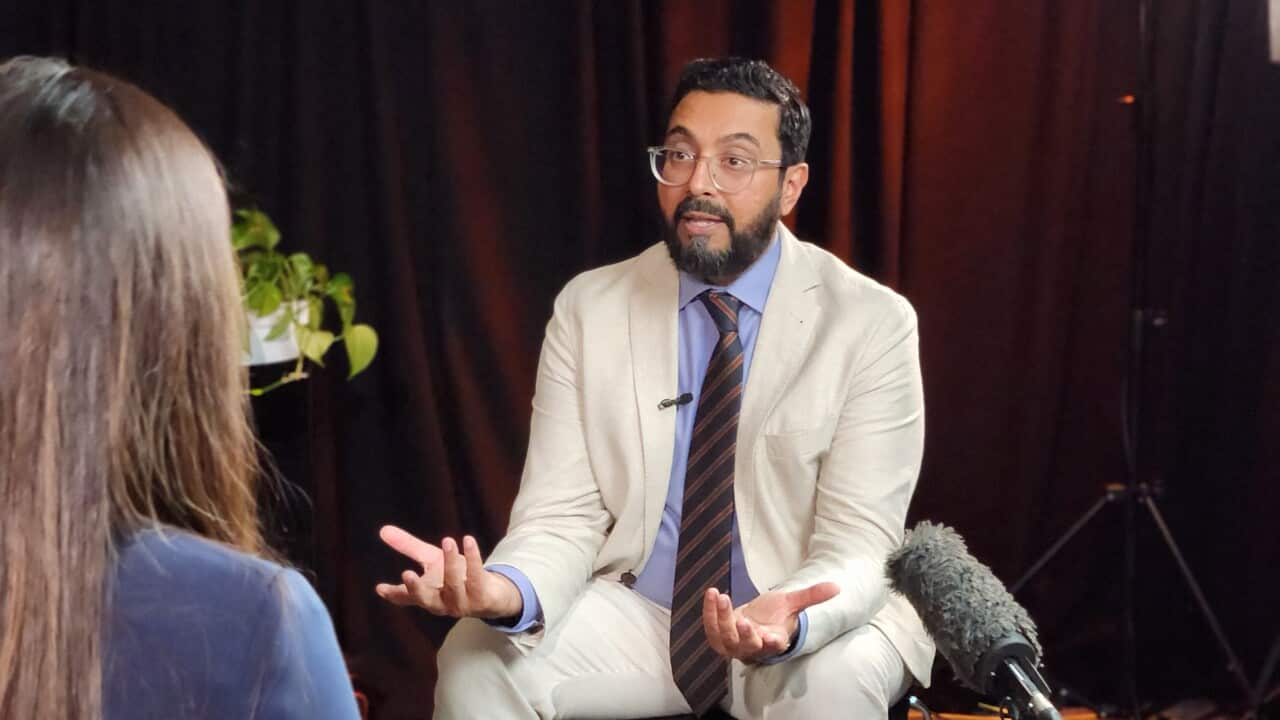Islamophobia has become normalised and is underreported across Australia, according to Aftab Malik, with Muslims regularly experiencing humiliation, violence, hatred and discrimination.
Malik, who assumed the role of special envoy to combat Islamophobia in October last year, said these incidents are “endemic” in Australia.
The ‘ordinariness’ of Islamophobia
Malik feels Islamophobic incidents are becoming all too common in Australia.
“My consultations revealed a landscape littered by Islamophobic brushes with humiliation and violence, and hatred and discrimination — and the ordinariness of it was what was very surprising,” he said.
“Islamophobia is taking place in very normal circumstances, in normal surroundings such as shopping malls, at the beaches, on public transport, even in schools, even amongst neighbourhoods. And so that scale was something that was quite surprising for me.”
According to the Islamophobia Register Australia, Islamophobic incidents here have increased by more than 600 per cent since Hamas attacked Israel on October 7 2023.
The register was set up in 2014 and is a platform where Islamophobic incidents are reported, recorded and analysed into a published report.
Malik said the register had tracked 932 incidents since the Hamas attack; more than the previous eight years combined.
He believes many more are going unreported and have become normalised.
“In my conversations, the majority of individuals that told me their stories of Islamophobia also informed me that they did not report it,” he said.
“What is extraordinary about Islamophobia is the ordinariness of it, it is occurring on a day-to-day basis.”
Since the Hamas-Israel war, antisemitic attacks have also increased in Australia, , synagogues being attacked and cars set on fire.
The attacks have been condemned by the government and the opposition, and on Tuesday, Prime Minister Anthony Albanese called a National Cabinet meeting in response.
Malik described the incidents as “shocking”.
“They’re terrifying, they’re intimidatory and they are simply done to instil fear and hate,” he said.
Antisemitism and Islamophobia
He said it was important not to create a “competition” between the hate experienced by the Jewish and Muslim communities.
“There is no ‘worse’ hate; hate is hate,” he said.
“It’s important to understand that both antisemitism and Islamophobia are repugnant, and both the Muslim and Jewish communities face common fear and anxiety.”
Malik noted that due to the “ordinariness” of Islamophobic incidents, they often do not elicit strong responses in the community.
“The antisemitic attacks are very confronting, such as the torching of the synagogue, the torching of vehicles, spray painting, and now obviously what happened with the child care facility in Maroubra … they elicit a visceral response and quite rightfully so,” he said.
“With Islamophobia, among some segments of society, you’ll be hard-pressed for them to realise that we’re in a period facing the highest recorded levels of Islamophobia ever. The problem is, is that because of the ordinariness of Islamophobia, it does not elicit a visceral response.”
In December, NSW senator Dave Sharma described Islamophobia as ‘fictitious.’
The senator made the remarks when responding to
“Any time any senior minister mentioned antisemitism in the last 12 months, they also mentioned a fictitious Islamophobia which was not going on,” he said.
Sharma later said he accepts Islamophobia exists and did not seek to discount experiences. He said he was criticising the government’s response to antisemitic attacks, and “false analogy or equivalence” with Islamophobia.
Malik said Sharma’s comments were “regrettable”, and said he assumed he had not intended to diminish Muslims’ experiences.
He also said he would “love to have a conversation” with politicians who deny the seriousness of Islamophobia.
Envoys for antisemitism and Islamophobia
The creation of Malik’s role came after the government appointed Segal in July 2024.
In December, in her interview with SBS News, she said she wanted restrictions placed on when and where pro-Palestinian protests can take place. Segal made the comments when discussing responses to antisemitism, and said many demonstrations had become intimidatory toward Jews.
“The cities should not be utilised for that,” Segal said.
“There should be places designated away from where the Jewish community might venture, where people can demonstrate.
Jillian Segal is Australia’s antisemitism envoy. Source: AAP / Thomas Parrish
“That is not to in any way to attack the right of people to express their views, but at some point, [holding protest] every single week becomes intimidatory in the city.”
Palestinian advocates criticised Segal’s comments, and Australia Palestine Advocacy Network president Nasser Mashni claimed she was trying to “silence critics of the Israeli government”.
When asked for his response to Segal’s comments, Malik said that if any attacks were taking place, they should be “clamped down” on.
But he added the freedom to protest is “a fundamental freedom and right”, and that he believes people should be able to do so legally as long as they are respectful.
“I think it’s important that people are able to assemble peacefully and respectfully and legally to do so,” he said.
“If we are looking for a change in the law, I would be very circumspect about that.”
He said it will take “immense effort” to combat Islamophobia.
“It really is a civil society problem; it impacts everyone, it undermines social cohesion, it destroys people’s resilience, it undermines citizenship, it creates social exclusion,” he said.
“The impact of Islamophobia is that it spreads hate, fear, isolation, and also an ‘us and them’ mentality. So this is an immense undertaking an immense task and will take many people.”

